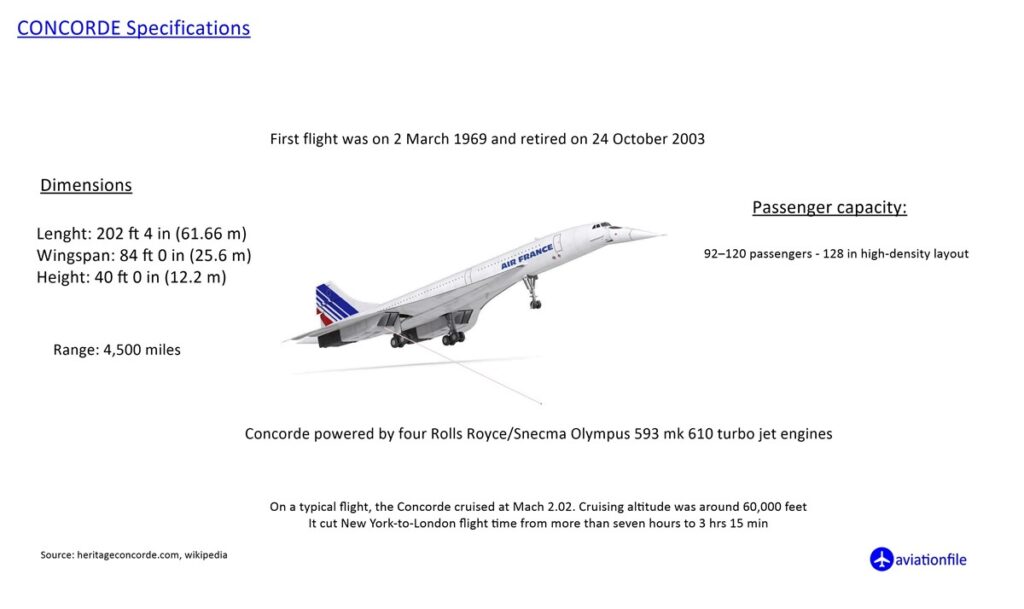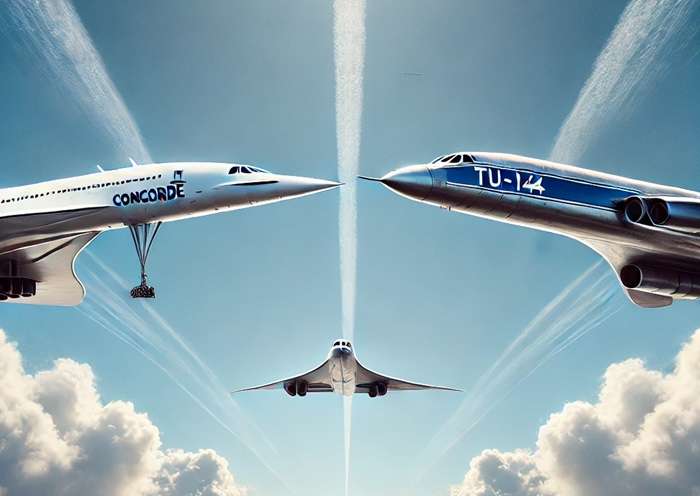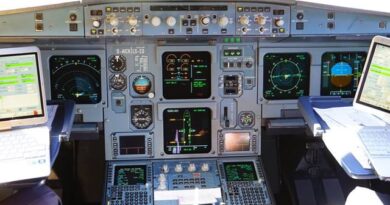The Supersonic Showdown: Concorde vs. Tupolev Tu-144
The race for supersonic flight in the 1960s, 70s and 80s sparked fierce competition between two aviation giants: the Anglo-French Concorde and the Soviet Tupolev Tu-144. Both aircraft promised to revolutionize air travel by cutting flight times in half. In this ultimate showdown, Concorde and Tu-144 went head-to-head in speed, technology, and commercial success. But which supersonic jet truly reigned supreme? Discover the thrilling story behind these iconic planes, from their groundbreaking designs to their dramatic falls from grace. Buckle up for a journey through aviation history like no other.
The 1960s, 70s, 80s saw a fierce competition between the West and the East in the race for supersonic passenger flight. Two iconic aircraft emerged from this race: the Anglo-French Concorde and the Soviet Tupolev Tu-144. Both were marvels of engineering, but they also had significant differences.
Speed Demons:
- Tu-144: The Tu-144 held the crown for being faster, reaching speeds of Mach 2.15 compared to Concorde’s Mach 2.04.
- Concorde: While slower, Concorde boasted a longer range of 3,900 nautical miles, allowing it to fly transatlantic routes.
- Noise: Both planes were incredibly loud, leading to noise restrictions and ultimately contributing to their demise.

Under the Hood:
- Engines: While the Olympus engines were more efficient than the Tu-144’s turbojet engines, they were not necessarily more advanced.
- Design: The Tu-144 was larger and heavier than the Concorde, affecting its fuel consumption and range.
Commercial Viability:
- Concorde: While initially successful, Concorde‘s high operating costs and limited passenger capacity made it commercially unsustainable.
- Tu-144: The Tu-144 never achieved regular passenger service due to safety concerns and economic challenges.
Legacy:
- Concorde: Despite its relatively short lifespan (1969 to 2003), Concorde remains an iconic symbol of aviation innovation and supersonic travel.
- Tu-144: The Tu-144’s legacy is a bit more controversial, with its potential overshadowed by safety issues and limited commercial success.
Which one was better?
The answer depends on your priorities. If speed was your main concern, the Tu-144 was the clear winner. However, if you valued efficiency and range the Concorde was the superior choice. Ultimately, both aircraft represented the pinnacle of supersonic passenger flight and serve as a testament to human engineering ingenuity.
| Specification | Concorde | Tupolev Tu-144 |
|---|---|---|
| Top Speed | Mach 2.04 (1,354 mph) | Mach 2.15 (1,429 mph) |
| Range | 3,900 nautical miles | 2,430 nautical miles |
| Passenger Capacity | 92–120 passengers | Up to 140 passengers |
| Engines | 4 Rolls-Royce/Snecma Olympus 593 turbojets | 4 Kuznetsov NK-144 or Kolesov RD-36-51A engines |
| Fuel Efficiency | Optimized for supersonic cruise without afterburners | Required afterburners for sustained supersonic flight |
| Noise Levels | High, especially during takeoff and landing | Very high, with notably noisy cabin environment |
| Years in Service | 1976–2003 | 1977–1978 (limited passenger service) |
| Commercial Flights | appx 50,000 flights | 55 passenger flights |
Additional Information:
- Both aircraft were eventually retired mainly due to economic factors and environmental concerns.
- The Concorde still holds the record for the fastest transatlantic passenger flight.
- The Tu-144 remains a popular subject of aviation enthusiasts and historians.
References.
- Wikipedia: https://en.wikipedia.org/wiki/Concorde
- Smithsonian National Air and Space Museum: https://airandspace.si.edu/collection-objects/concorde-fox-alpha-air-france/nasm_A20030139000
- Flight International: https://en.wikipedia.org/wiki/Concorde
Tu-144:
- Wikipedia: https://en.wikipedia.org/wiki/Tupolev_Tu-144
- Tupolev Museum: https://tupolev.ru/about/museum/
- International Civil Aviation Organization (ICAO): https://www.icao.int/Meetings/anconf13/Documents/WP/wp_211_en.pdf
Additional Sources:
- Boom Supersonic (company developing a new supersonic passenger aircraft): https://boomsupersonic.com/
- The Concorde Story: https://www.amazon.com/Flying-Concorde-Brian-Calvert/dp/1840373520
Featured image source: By RIA Novosti archive, image #566221 / Lev Polikashin / CC-BY-SA 3.0, CC BY-SA 3.0, https://commons.wikimedia.org/w/index.php?curid=18162890



